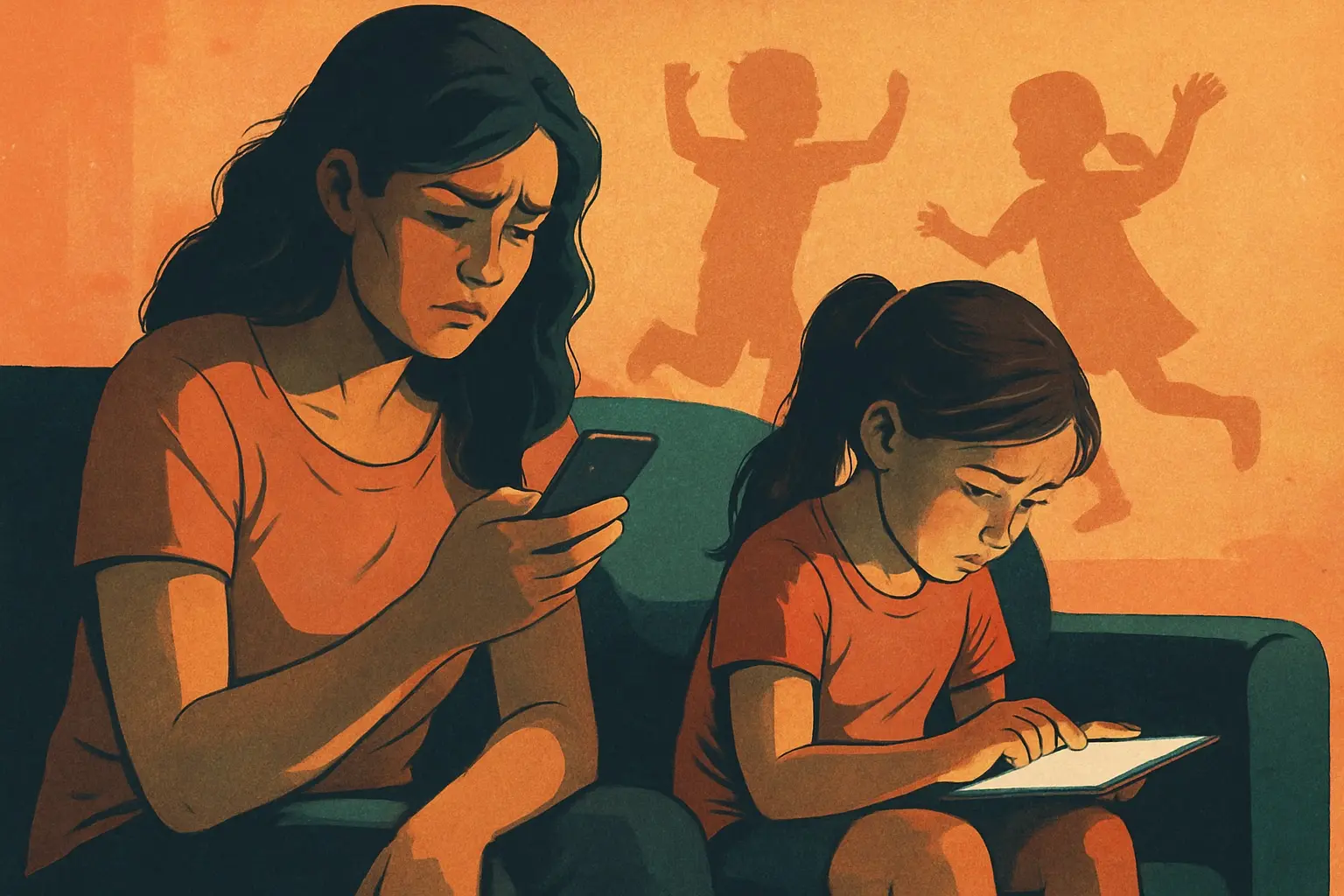By
Gigabit Systems
September 8, 2025
•
20 min read

From Playgrounds to Phone Screens: The Anxious Generation
If you raised your kids on smartphones and social media, then you were doubling and tripling their chances of being depressed, anxious, and suicidal.
We have overprotected our children in the real world and underprotected them in the digital world. Parents, you are re-wiring your children to be more anxious and depressed.
In his book The Anxious Generation (2024), psychologist Jonathan Haidt makes a striking claim: the sharp rise in youth anxiety and depression over the past decade is tied to a cultural shift — from a play-based childhood to a phone-based childhood.
🧩 The Shift: From Outdoor Play to Online Scrolling
For centuries, children developed resilience, social skills, and independence through free play — climbing trees, riding bikes, navigating conflicts face-to-face.
But around 2012, something changed. Smartphones and social media became constant companions. Instead of climbing monkey bars, kids scroll feeds. Instead of face-to-face conflict resolution, they text.
The result? Higher reported levels of:
Anxiety and depression
Social isolation
Sleep disruption
Difficulty managing real-world stress
⚠️ Why It Matters for Parents, Schools, and Businesses
This isn’t just a parenting problem — it’s a societal challenge.
Schools face students struggling with focus and mental health.
Healthcare systems are treating record numbers of young patients with anxiety.
Businesses hiring Gen Z see employees who may excel digitally but struggle with communication, resilience, and boundaries.
The digital childhood shapes the digital workforce.
🔒 A Cybersecurity Angle
There’s also a hidden risk: a phone-based childhood produces adults who are more digitally dependent, often less skeptical of online risks.
Phishing attempts succeed more when users can’t separate real from fake.
Oversharing on social media fuels identity theft.
Dependence on online validation can make individuals more vulnerable to manipulation.
The mental health crisis and the cybersecurity crisis are not separate stories — they are intertwined.
🌱 What Can Be Done?
Haidt argues for a return to play-based principles:
Encourage outdoor, unsupervised play to build resilience.
Delay smartphone ownership until later adolescence.
Limit social media exposure during critical developmental years.
Foster offline communities where kids — and adults — can connect face-to-face.
We need play-based play dates instead of screen-based play dates.
The Takeaway
The anxious generation didn’t appear overnight. It’s the byproduct of a society that traded play for phones, resilience for scrolling, and connection for notifications.
Rebalancing won’t be easy, but it’s essential. The future of mental health, education, business, and even cybersecurity depends on it.
70% of all cyber attacks target small businesses. I can help protect yours.
#CyberSecurity #MentalHealth #TheAnxiousGeneration #TechAndSociety #DigitalWellness